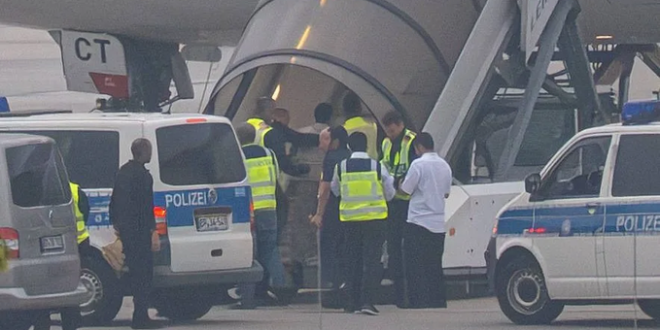KABUL – Germany has carried out its first deportation flights of failed Afghan asylum seekers since 2021, sending 102 men back home under a tightly coordinated operation that combined armed escorts, secret logistics, and £900 handouts per deportee to ensure compliance and minimize legal challenges.
The flights, operated via Qatar Airways from Leipzig airport, marked Germany’s most ambitious attempt to enforce immigration law without formally recognising the Kabul government. Onboard, the deportees were accompanied by 49 armed Qatari security guards, while 250 German federal police officers provided additional landside protection. Afghan officials were barred from entering Germany for the operation, highlighting Berlin’s delicate diplomatic balance.
“The men were legally required to leave our country and included serious criminal offenders,” said German Interior Minister Alexander Dobrindt. A Qatari-led mechanism confirmed identities and ensured deportees would not face torture or execution upon return. Each deportee received €1,000 in handouts to avoid destitution, in line with German court precedents that can block deportations on humanitarian grounds.
The flights come as part of broader migration reforms under Chancellor Friedrich Merz, aimed at accelerating deportations and reducing asylum applications, which have already fallen by 50% in the first half of 2025. The operation involved intensive legal preparation, including a Leipzig court ruling permitting removal of failed asylum seekers even if deportation to their home country is difficult.
Experts say the flights are likely to pave the way for thousands more deportations. Prof. Daniel Thym, director of the University of Konstanz’s research centre on immigration law, said, “If current legal measures succeed, the number of deportable Afghans could rise into the tens of thousands, while fully respecting those with legitimate refugee status.”
The deportation has drawn sharp criticism from human rights groups, but German authorities argue that Kabul is no longer considered a war zone under international law and that the deportees’ return does not violate conventions against inhuman treatment. The flights underscore Germany’s increasingly hardline stance on migration and its willingness to navigate complex diplomatic, legal, and logistical hurdles to enforce policy.
With Berlin using Qatar as an intermediary and Afghan envoys in Germany limited to coordination roles, the operation reflects a new era of managed deportations, blending international diplomacy with domestic legal strategy. Officials say these flights are just the beginning of a series of deportations intended to reduce illegal residency, deter crime, and reinforce Germany’s tightening immigration framework.
 Afghanistan Times
Afghanistan Times




